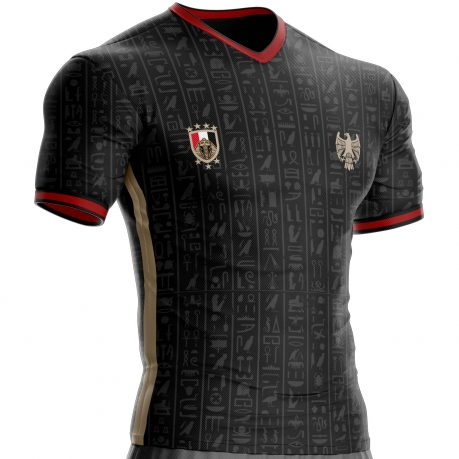Your cart
There are no more items in your cart
Search here for your team, country, city, region, state...
Our Next-Gen Jerseys :
Explore our amazing collection of football jerseys!
WHO ARE WE ?
Welcome to UNITIF: Your Go-To Destination for Unique and Supporter-Driven Football Jerseys!
At UNITIF, we understand the passion that football supporters feel for their teams, and we are here to celebrate it with a range of exclusive, unofficial football jerseys. Our store was born from a love of the game and a desire to provide fans with jerseys that allow them to proudly showcase their national pride. Each jersey in our collection is crafted from high-quality materials to ensure the best comfort, whether you're playing the game or cheering on your favorite team from the stands.
We offer jerseys for adults and children alike, with sizes that fit every fan. Additionally, we provide a customization service so you can personalize your jersey with the name and number of your choice. Our extensive selection is sure to have the perfect jersey to support your country, whether you're on the field or showing your pride from afar.
Explore Our Global Collection of Football Jerseys
At UNITIF, we take pride in offering a diverse range of jerseys inspired by some of the most iconic nations around the world. Whether you support a team from Algeria, Tunisia, or Morocco, our jerseys are designed to help you represent your country with style and pride. If European football is your passion, you'll find jerseys for teams like France, Germany, Spain, Portugal, and Italy.
For those from the DOM-TOM regions, we've got you covered with jerseys from Guadeloupe, Martinique, and Reunion Island. Wherever you're located, these jerseys are a perfect way to stay connected to your roots and show your pride from anywhere in the world.
We also feature jerseys for teams from the Middle East and North Africa, such as Turkey, Iraq, Egypt, Syria, and Lebanon. Whether you're supporting your home country or showing solidarity with another, UNITIF's extensive lineup has something for every fan.
Why Choose UNITIF?
Our goal at UNITIF is simple: we want to provide fans with exclusive, unofficial jerseys that help them stand out. Our collection of designs is unlike any you'll find elsewhere, and our commitment to high-quality craftsmanship ensures that every jersey is made to last.
We strive to make sure our jerseys not only look great but feel great too. By using premium materials, we've created jerseys that offer durability, comfort, and style all in one. Whether you're at a live match, playing with friends, or just out for the day, our jerseys will keep you comfortable while showing off your team spirit.
Customization for a Personal Touch
What sets UNITIF apart is our customization option, which lets you personalize your jersey with your favorite name and number. This added feature gives you the chance to make your jersey truly one-of-a-kind, perfect for showing your unique connection to the team or player you support. Whether you want to add your own name or that of your favorite football star, our easy customization process ensures that your jersey will be ready for action in no time.
Global Shipping: Support Your Team from Anywhere
We know that football fans come from every corner of the world, and that’s why we’re proud to offer worldwide shipping. Whether you're in North America, Europe, Asia, or the Middle East, we'll make sure your jersey arrives quickly so you can start showing your support as soon as possible.
No matter where you are, UNITIF makes it easy to represent your team in style. Our jerseys can be shipped globally, allowing you to show your national pride no matter where you live.
More Than Just Jerseys: A Community of Fans
UNITIF is not just a store, it's a community of football supporters who share the same love for the game. We’ve built a loyal customer base by offering high-quality jerseys that celebrate football’s rich diversity. Fans from around the world connect with us, sharing their stories, team pride, and jersey photos on social media. By joining the UNITIF community, you’re becoming part of a larger group of supporters united by a shared passion for football.
Celebrate Diversity Through Football
UNITIF is proud to celebrate the diversity of football fans around the globe. We believe in the power of sports to unite people across borders, cultures, and languages. Through our wide selection of unofficial, country-inspired football jerseys, we aim to foster inclusivity and give fans the opportunity to show their pride for their home country or the team they love.
No matter where your allegiance lies, our jerseys are designed to help you express your passion for the game and your pride in your roots. At UNITIF, we’re committed to offering jerseys that truly capture the essence of what it means to be a football supporter.
FAST DELIVERY IN THE USA, CANADA, AUSTRALIA & WORLDWIDE
Experience Fast, Reliable Delivery with UNITIF.com – Loved by Fans in the USA, Canada, Australia & Worldwide !
At UNITIF.com, we know how important it is to get your new football jersey in your hands as quickly as possible. That’s why we’ve made fast and reliable worldwide delivery a top priority. Whether you're in Europe, North America, or any other part of the world, our goal is to get your order to you swiftly and safely so you can start wearing your team colors with pride.
We've partnered with leading logistics companies, including Laposte Colissimo, DHL, and UPS, to ensure your package arrives fast, secure, and on time. These trusted delivery services are known for their efficiency and global reach, allowing us to offer fast delivery to customers worldwide, including in the USA and Canada, where our jerseys are hugely popular.
Super-Fast Delivery in Europe
For our European customers, our reliable partners will have your jersey to you within 5 to 7 days. You won't have to wait long to wear your new jersey, whether it’s for a game day or simply to express your support for your country.
Worldwide Shipping That’s Fast and Reliable
But we don't stop there. UNITIF.com is committed to offering lightning-fast delivery worldwide. If you're outside of Europe, our extensive delivery network ensures that your order will arrive in as little as 4 days. This includes our valued customers in the USA and Canada, where our jerseys have become a fan favorite. No matter where you are, whether in North America or another region, you can count on us for a swift and secure delivery experience.
Flexible and Customer-Centric Return Policy
At UNITIF.com, we’re dedicated to making your shopping experience as smooth as possible. That’s why we offer a free size exchange service in case the jersey you receive doesn’t fit quite right. Simply let us know, and we’ll make the process quick and hassle-free.
In addition, if for any reason you're not satisfied with your purchase, we offer a full refund within 14 days, with no questions asked. We believe that customer satisfaction is our highest priority, and we’re confident in the quality of our products and services. Our no-strings-attached return policy ensures that you can shop with confidence every time.
Loved by Fans in the USA and Canada
UNITIF.com isn’t just popular in Europe – our jerseys are in high demand in both the USA and Canada. We’ve built a strong following in North America, thanks to our fast delivery times, quality products, and unbeatable customer service. Whether you're a football fan in the USA or cheering on your favorite team from Canada, you can trust UNITIF.com to deliver your new jersey quickly and with care.
Why Choose UNITIF.com for Your Football Jerseys?
When you shop with UNITIF.com, you’re choosing fast, reliable shipping, top-quality products, and a customer-first approach. We take pride in providing a smooth and hassle-free experience for every order. With our partnerships with the best delivery services, your order will arrive quickly, no matter where you are in the world.
From personalized jerseys to iconic team designs from around the globe, you can trust us to deliver your jersey in top condition, with fast shipping that’s designed to meet the needs of our customers in Europe, North America, and beyond.
Order Today and Experience Fast Delivery with UNITIF.com
Don't wait any longer to get the jersey you've been dreaming of! Place your order with UNITIF.com today, and enjoy lightning-fast delivery to your door. Whether you're in the USA, Canada, or any other country, we’re ready to help you support your favorite team in style and comfort. With our commitment to fast shipping, quality products, and exceptional customer service, you’ll be ready to represent your team in no time.
100% EASY RETURNS
Hassle-Free Returns at UNITIF.com: No Matter Where You Are
At UNITIF.com, we’re dedicated to providing an exceptional shopping experience from the moment you find your ideal jersey to the day it arrives. We understand that sometimes, your order might not fit quite right or meet your expectations. That's why we offer an easy return policy that’s designed to make the process as simple as possible—even for our customers in the USA, Canada, and across the globe.
Whether you're located in North America or anywhere else around the world, rest assured that returning or exchanging your jersey is hassle-free. If your order doesn’t quite meet your expectations, our streamlined return process allows you to exchange or return your jersey with minimal effort. Our focus is on your satisfaction, regardless of where you're based.
If the size isn’t right, we’ll gladly offer an exchange to ensure you get the best fit. Whether you’re cheering on your team from the USA, Canada, or elsewhere, we want you to feel comfortable and confident in your new jersey.
In the event you’re unsatisfied with your order for any reason, we also provide full refunds. Your happiness is our number one priority, and we strive to make sure every customer is completely satisfied with their purchase at UNITIF.com.
No matter where you're shopping from—be it the USA, Canada, or another part of the world—our customer service team is ready to assist with any questions or concerns about returns and exchanges. Whether you're selecting the right size or curious about our refund policy, don’t hesitate to reach out. We aim to ensure that your experience at UNITIF.com is as smooth as possible, from beginning to end.
At UNITIF.com, our goal is to offer high-quality products, backed by excellent customer support and an effortless shopping experience. You can shop confidently, knowing that if something’s not quite right, we’ll work to make it right—no matter where in the world you are.
Discover the convenience of easy returns, available worldwide. Shop today and find the perfect jersey to express your team pride, with the peace of mind that returning or exchanging your order is simple, wherever you are!
100% SATISFACTION GUARANTEED: Full Refund, No Questions Asked
Your Satisfaction Comes First: Easy Refunds for North American Customers at UNITIF.com
At UNITIF.com, we prioritize more than just offering top-tier football and basketball jerseys – our primary goal is ensuring that every customer is completely satisfied with their purchase. We know how important it is to feel confident when shopping online, which is why we’ve crafted an easy refund policy, specifically designed for customers across the USA and Canada.
We get it—shopping online can be uncertain at times. You might wonder if your jersey will fit just right, if the colors will match what you saw on the screen, or if the design will impress as much in person. But with UNITIF.com, you can put those concerns to rest. We’re all about providing a seamless experience, from browsing to delivery and, if needed, returns.
If your jersey doesn’t live up to expectations—whether the size isn’t quite right, the color looks different, or you simply changed your mind—we’ll process a quick and easy refund. No complicated questions, no hassle. It’s as straightforward as that. Your satisfaction is what drives us, and we want you to feel secure with every order you place.
We take pride in the quality of our products and the happiness of our customers across North America. That’s why we offer this simplified refund process—to make sure you feel good about every jersey purchase. If something isn’t exactly what you wanted, don’t worry—we’ll make sure it’s resolved promptly.
Whether you're based in the USA, Canada, or beyond, our customer service team is here to support you. If you have any questions, concerns, or want to initiate a return, we’re just a message away. We aim to make your experience at UNITIF.com as smooth and satisfying as possible, from start to finish.
So, why wait? Browse our collection and find the perfect football or basketball jersey to showcase your team spirit today. And remember, with UNITIF.com, you can always count on easy returns and refunds, because your satisfaction is our top priority.
AWESOME PRICES FOR AWESOME DESIGNS
Affordable Quality: Premium Football Jerseys at Unbeatable Prices for North American Fans
At UNITIF.com, we believe showing your support for your favorite team or country shouldn’t break the bank. That’s why we’re excited to bring our North American customers the best football jerseys at unbeatable prices. Whether you’re representing Palestine, Egypt, Pakistan, or any other nation, we’ve made it our mission to combine quality with affordability.
We know how important it is to proudly wear your team’s colors, whether you’re on the field or cheering from the sidelines. With that in mind, we’ve curated a wide variety of jerseys from around the world, ensuring that every fan can find their perfect match without overspending. Each jersey, from Palestine’s iconic keffiyeh designs to the bold styles of Egypt and Pakistan, is crafted with top-quality materials, giving you style and durability at a price that fits your budget.
Our collection extends beyond national pride—we also offer jerseys for your favorite clubs, cities, and players. Whether you’re after something classic or bold, you’ll find a wide range of styles at UNITIF.com, all at unbeatable prices. No need to sacrifice quality for affordability—our jerseys are designed to give you the best of both worlds.
We understand that finding high-quality sportswear at a reasonable price can be challenging, but that’s exactly why we’re here. For fans in the USA and Canada, UNITIF.com is your go-to destination for premium jerseys that let you show your pride without emptying your wallet. From Palestine to Egypt to Pakistan, we’ve got you covered with excellent products and unbeatable prices.
So why wait? Shop now and discover the best deals on premium jerseys, only at UNITIF.com!
OUR FABRIC ARE OF PREMIUM QUALITY QUALITY : FEEL THE DIFFERENCE !
Superior Craftsmanship: Football Jerseys You Can Rely On, Only at UNITIF.com
At UNITIF.com, we are dedicated to providing football fans across the USA and Canada with jerseys of unmatched quality. When you purchase from us, you’re not just buying a jersey—you’re making an investment in premium apparel designed to last. Each jersey in our collection reflects a commitment to excellence, ensuring you’ll always feel great whether you’re playing on the field or cheering from the stands.
We start with the finest materials, carefully selected to provide comfort, durability, and performance. Our jerseys are made from fabrics that breathe, move with you, and hold up to even the most intense game conditions. Whether it’s the intricate design of our Palestine, Egypt, or Pakistan jerseys, or any of the other standout options we offer, you can trust that your UNITIF.com jersey will look as good as it feels.
What truly sets our jerseys apart, though, is the craftsmanship. Our team of expert designers and artisans meticulously construct each piece, paying close attention to every detail—from precision stitching to bold, vibrant patterns. Whether it’s the classic look you’re after or a more modern design, you can rely on the skill and care that goes into every jersey we produce.
Fit matters, and we’ve designed our jerseys to suit all body types. With sizes for everyone, we’ve made sure that your UNITIF.com jersey not only looks great but also feels like it was tailored just for you. And if you need assistance selecting the right size, our friendly customer support team is ready to help guide you toward the perfect fit.
Our customers across North America consistently rave about the outstanding quality of our jerseys. From the vivid colors to the superior craftsmanship, our jerseys go beyond expectations. And while our no-hassle return policy allows you to shop with peace of mind, we’re confident that the craftsmanship and quality of our products will leave you completely satisfied.
For quality football jerseys you can trust, shop with UNITIF.com today!
EVERY SPORTS REPRESENTED ! (soccer, football, basketball, rugby)
Elevate Your Game with Premium Sports Apparel from UNITIF.com
At UNITIF.com, we go beyond just offering high-quality football jerseys—we provide a complete range of sports apparel that helps you excel, whether you're dominating the pitch or lighting up the court. Our dedication to superior craftsmanship is reflected across our entire collection, from football and basketball jerseys to training gear and tracksuits, all designed to ensure you perform your best.
When it comes to football jerseys, we set the standard. Crafted from top-tier materials, our jerseys guarantee comfort, durability, and peak performance. Whether you’re representing your national team, your favorite club, or a local squad, UNITIF.com jerseys are built to endure the demands of the game. From vibrant designs to exceptional fabric, our football jerseys are tailored to help you bring your best every time you hit the field.
But we don’t stop there—our range also includes premium basketball jerseys that turn heads both on and off the court. Featuring classic and contemporary designs, our basketball jerseys are made with the same meticulous attention to quality and detail as our football apparel. Whether you’re sinking a three-pointer or making a fast break, UNITIF.com basketball jerseys ensure you look and feel your best during every play.
In addition to jerseys, our selection extends to high-performance training pants and tracksuits, perfect for athletes preparing for game day. Our training pants are made from lightweight, breathable materials that keep sweat at bay and maximize your mobility. And for those colder days, our tracksuits provide warmth and protection from the elements, allowing you to focus entirely on your training without distractions.
At UNITIF.com, we believe that performance begins with quality. We understand that athletes need sportswear that not only looks great but also performs at the highest level. That’s why every piece in our collection, from jerseys to training gear, is crafted with excellence in mind. Whether you’re prepping for a big match or honing your skills during practice, you can trust that our apparel will meet the demands of your sport.
For athletes in the USA, Canada, and beyond, UNITIF.com offers sportswear designed to help you reach your full potential. Shop now and gear up with the best apparel to take your game to the next level!

Worldwide fast delivery in 48H !
Delivered in 48H in the USA, Canada & worldwide

100% Secure payments
Thanks to our partners Paypal, Stripe and Amazon Pay

Easy returns, exchanges & refunds
You changed your mind ? 100% Money-Back Guarantee without any questions asked

A question ? We are always happy to assist you.
By phone at +33 7 71 18 51 68 or by Whats'app or by email [email protected]















